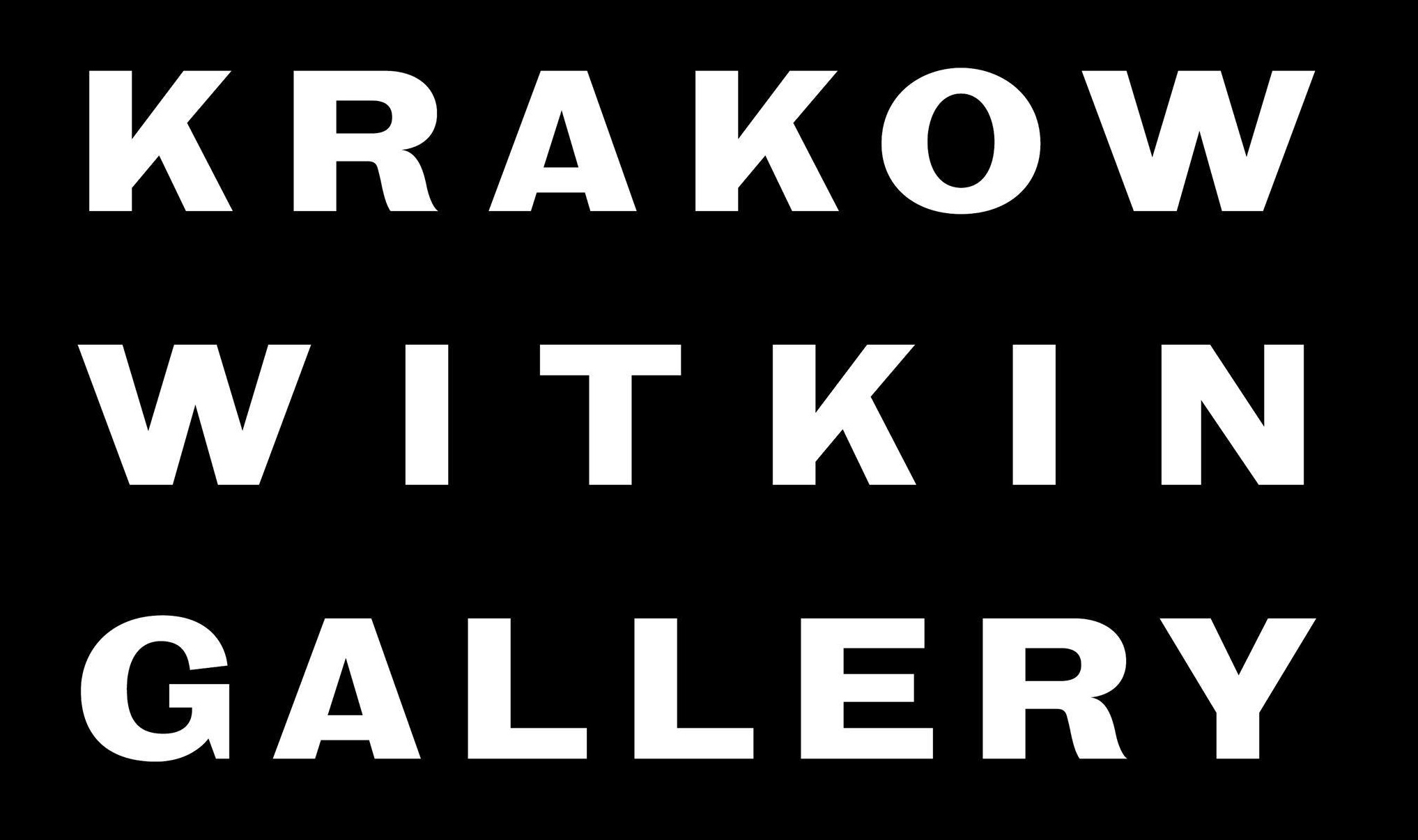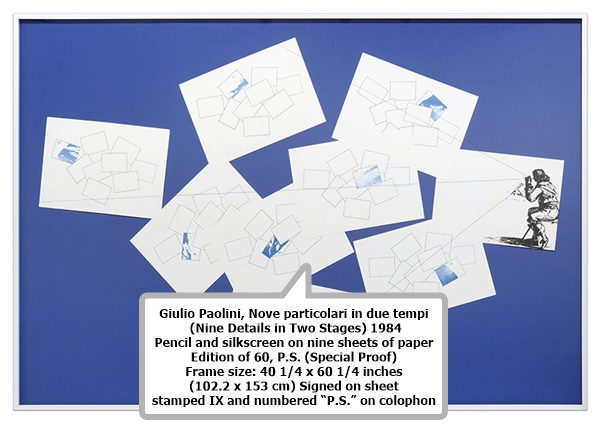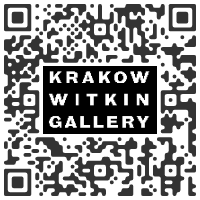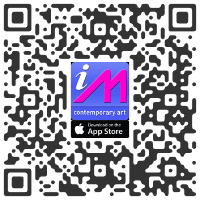Giulio Paolini

Krakow Witkin Gallery
10 Newbury Street Boston, Massachusetts 02116Telephone: 617 – 262 – 4490 Fax: 617 – 262 – 8971 e-mail:



May 13 > June 3, 2021

Giulio Paolini has explored issues of control and comprehension using collage, perspective and quotation for much of his life.
In "Nove particolari in due tempi (Nine Details in Two Stages)," Paolini's appropriated image of the figure is not in the center, but off to the right. The perspectival lines are not connected to the right (writing/drawing) hand of the figure, but closer to the left eye and/or the raised left hand. In the overall composition, Paolini balances between centrifugal and centripetal forces where the left goes right, the right goes left and hierarchy (between artist, viewer, subject matter, source material and end result) is always in question.
Looking further at the figure, its image can be read as being taken from "the past" on account of its enlarged engraving-like lines (the image is taken from a seventeenth-century handbook about perspective, "Les Perspecteurs" by Abraham Bosse). The reproduced lines are contrasted by the rigidly clean and geometric rectangles on the other sheets of paper as well as by the straight but hand-drawn lines that unify the overall composition. In addition, the images of what can be read as clouds or the sea are also, visibly, reproductions (on account of their image-grain) and so, not only are they hazy on account of the imagery, but also on account of the images being multiple steps away from their source.
Paolini's use of reference expands the meaning of the work and also serves to acknowledge and focus on the idea of "reference" as a forever-morphing aspect of life. Order (perspective, predetermined diagrams on each sheet showing the placement of each piece of paper in the overall composition, every sheet representing the scheme of the whole work) and chaos (the seemingly haphazard, strewn-about quality of the sheets of paper), the past and the present, the actual and the reproduced - these are all subjects within "Nove particolari in due tempi (Nine Details in Two Stages)" and subjects with which Giulio Paolini has spent over fifty years exploring through works on paper, installations and writing.
Giulio Paolini has had numerous exhibitions in art galleries and museums around the world. Among the largest are those that have been held at Palazzo della Pilotta in Parma (1976); Stedelijk Museum in Amsterdam (1980); Nouveau Musée in Villeurbanne (1984); Staatsgalerie in Stuttgart (1986); Galleria Nazionale d'Arte Moderna in Rome (1988); Neue Galerie am Landesmuseum Joanneum, Graz (1998); GAM Galleria Civica d'Arte Moderna e Contemporanea, Turin (1999); Fondazione Prada in Milan (2003); Kunstmuseum in Winterthur (2005); MACRO Museo d'Arte Contemporanea Roma (2013); Whitechapel Gallery, London (2014); and Castello di Rivoli -Museo d'Arte contemporanea (2020), Turin. Paolini has participated four times in Documenta in Kassel (1972, 1977, 1982, 1992) and ten times at the Venice Biennale (1970, 1976, 1978, 1980, 1984, 1986, 1993, 1995, 1997, 2013).
In "Nove particolari in due tempi (Nine Details in Two Stages)," Paolini's appropriated image of the figure is not in the center, but off to the right. The perspectival lines are not connected to the right (writing/drawing) hand of the figure, but closer to the left eye and/or the raised left hand. In the overall composition, Paolini balances between centrifugal and centripetal forces where the left goes right, the right goes left and hierarchy (between artist, viewer, subject matter, source material and end result) is always in question.
Looking further at the figure, its image can be read as being taken from "the past" on account of its enlarged engraving-like lines (the image is taken from a seventeenth-century handbook about perspective, "Les Perspecteurs" by Abraham Bosse). The reproduced lines are contrasted by the rigidly clean and geometric rectangles on the other sheets of paper as well as by the straight but hand-drawn lines that unify the overall composition. In addition, the images of what can be read as clouds or the sea are also, visibly, reproductions (on account of their image-grain) and so, not only are they hazy on account of the imagery, but also on account of the images being multiple steps away from their source.
Paolini's use of reference expands the meaning of the work and also serves to acknowledge and focus on the idea of "reference" as a forever-morphing aspect of life. Order (perspective, predetermined diagrams on each sheet showing the placement of each piece of paper in the overall composition, every sheet representing the scheme of the whole work) and chaos (the seemingly haphazard, strewn-about quality of the sheets of paper), the past and the present, the actual and the reproduced - these are all subjects within "Nove particolari in due tempi (Nine Details in Two Stages)" and subjects with which Giulio Paolini has spent over fifty years exploring through works on paper, installations and writing.
Giulio Paolini has had numerous exhibitions in art galleries and museums around the world. Among the largest are those that have been held at Palazzo della Pilotta in Parma (1976); Stedelijk Museum in Amsterdam (1980); Nouveau Musée in Villeurbanne (1984); Staatsgalerie in Stuttgart (1986); Galleria Nazionale d'Arte Moderna in Rome (1988); Neue Galerie am Landesmuseum Joanneum, Graz (1998); GAM Galleria Civica d'Arte Moderna e Contemporanea, Turin (1999); Fondazione Prada in Milan (2003); Kunstmuseum in Winterthur (2005); MACRO Museo d'Arte Contemporanea Roma (2013); Whitechapel Gallery, London (2014); and Castello di Rivoli -Museo d'Arte contemporanea (2020), Turin. Paolini has participated four times in Documenta in Kassel (1972, 1977, 1982, 1992) and ten times at the Venice Biennale (1970, 1976, 1978, 1980, 1984, 1986, 1993, 1995, 1997, 2013).
 | Giulio Paolini | |
mpefm
USA art press release
Opening hours :
by appointment, Tuesday - Saturday, 10 - 5:30.
(please email to schedule).
QR of this press release
in your phone, tablet

Opening hours :
by appointment, Tuesday - Saturday, 10 - 5:30.
(please email to schedule).
QR of this press release
in your phone, tablet








